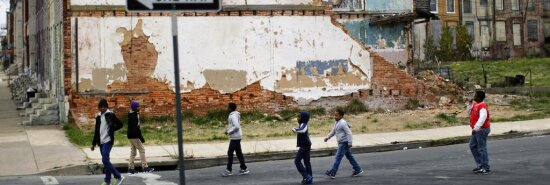
Technocrats try to do with policy what can happen only organically
Timothy P. Carney
Video Embed
A defining trait of America’s public policy debates is that technocratic wonks, many of whom are temperamentally asocial and philosophically hyperindividualistic, try to craft laws and regulations to provide the goods that historically have been provided organically through community, family, and norms.
President Franklin D. Roosevelt proposed his New Deal in part as a replacement for community. In a radio address touting Social Security, he said, “Where heretofore men had turned to neighbors for help and advice, they now turned to Government.
ECONOMIC GROWTH SURGED IN THIRD QUARTER TO 4.9% RATE DESPITE HIGH INTEREST RATES
When marriage and family formation collapse, liberals propose welfare programs, and conservatives propose their own big-government programs.
Facing drug abuse epidemics, state and local governments turn to mass incarceration, and the federal government turns to an international war on drugs.
These efforts haven’t worked because it’s really hard to solve social problems with government programs.
Every policymaker on the Left and the Right should read the new book Fragile Communities by Seth Kaplan, an international expert in fragile states who has brought his expertise to American neighborhoods.
Having worked for the World Bank and the State Department in places such as Libya, Yemen, and Colombia, Kaplan understands what makes people’s lives fall apart and what helps people keep their lives together. The answer could be simplified to community.
In Fragile Communities, he turns his focus to neighborhoods (rich and poor) around the country. He argues that what they need is not the sort of thing that can be accomplished directly through policy, but something that needs to be cultivated and needs to grow organically — neighborhoods, community, connection.
The “social conditions” (specifically, “neighborhood health”) are the key, Kaplan argues.
“Instead of trying to improve individual lives by merely increasing access to basic material necessities, we should endeavor to create social conditions necessary for every person and family to strive.”
Policymakers and commentators miss the problem and never happen upon workable solutions because they tend to operate under the bad anthropology that defines the day. Kaplan aims to correct that bad anthropology.
“While our popular culture tends to portray each of us as fully autonomous individual in control of their destiny,” Kaplan writes, “social science observes that this is far from true. Each of us is embedded in circles of relationships and institutions that shape everything from our psychology and beliefs to how we treat each other and what life choices we have and make.”
I got to read this book in an early draft, and I’ve just now cracked the final product, which published this week. I’m sure I’ll be commenting on it more as I plow through it.
